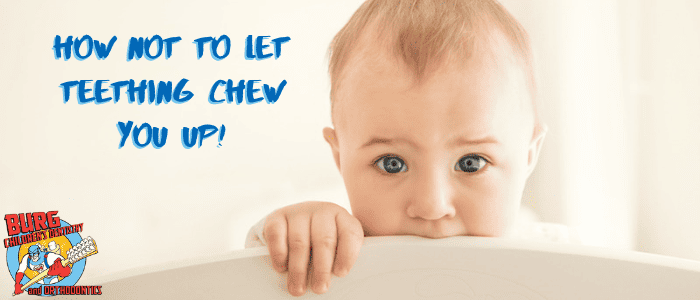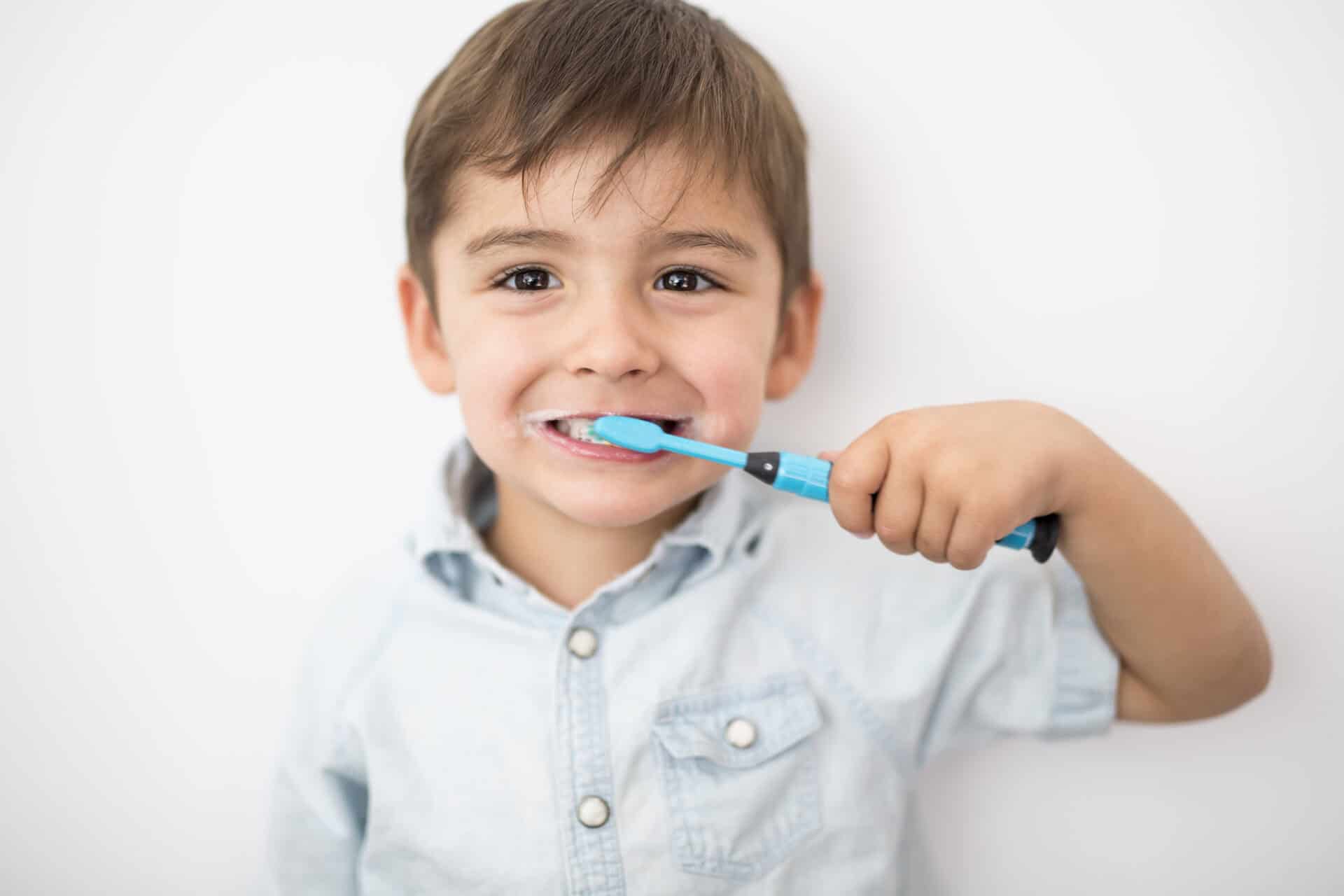
I have a baby. A sweet, cute, lovely, happy little baby.
I also have a monster. Mr. Hyde, if you will. He sneaks up on us, makes us want to run for cover, and keeps us all up at night. When Mr. Hyde takes over my sweet baby, we tend to find that upon further investigation it’s due to none other than good ol’ TEETHING. …that T word…
 ,
,
Anyone who has had a baby knows that it’s just as painful for the parents as it is the infant. Here are a few tips to help you kick Mr. Hyde to the curb and make teething a less painful experience for everyone:’
First, let’s understand the symptoms of teething:
- Teething usually begins between four to seven months old (but varies from baby to baby). Put teething on your radar around this time so if your baby is particular fussy you can keep the teething culprit in mind.
- Fussiness, soreness, and swelling symptoms usually begin three to five days before the teeth actually make an appearance.
- Babies might chew on things, drool, and might even get a rash on their chin, face or chest (usually from the excessive drooling).
- Crying, diarrhea, fever, runny nose, sleeping problems, mood changes, pulling on their ears, and refusal of food and drink can also be symptoms of teething.
How to alleviate teething pains:

- Give them a mild pain reliever like Tylenol or Ibuprofen. DO NOT give a baby Aspirin! You can even use gels like Orajel to help numb the area. Just always ask your doctor first.
- Rub/massage your baby’s gums with your (clean) finger to alleviate the pressure.
- Give them a cold teething ring or a cold washcloth (put it in the freezer for a few minutes) to chew on.
- If old enough, cold foods such as yogurt and applesauce, or even teething crackers can help.
- Draw water into a pacifier and freeze it to give your baby some relief.
- Give them a bottle or cup of icy cold water to help chill their aching gums.
The most important step in the teething process is for us as parents to remember that it’s temporary, and our sweet little baby will be back before we know it…until something else comes along, that is.




